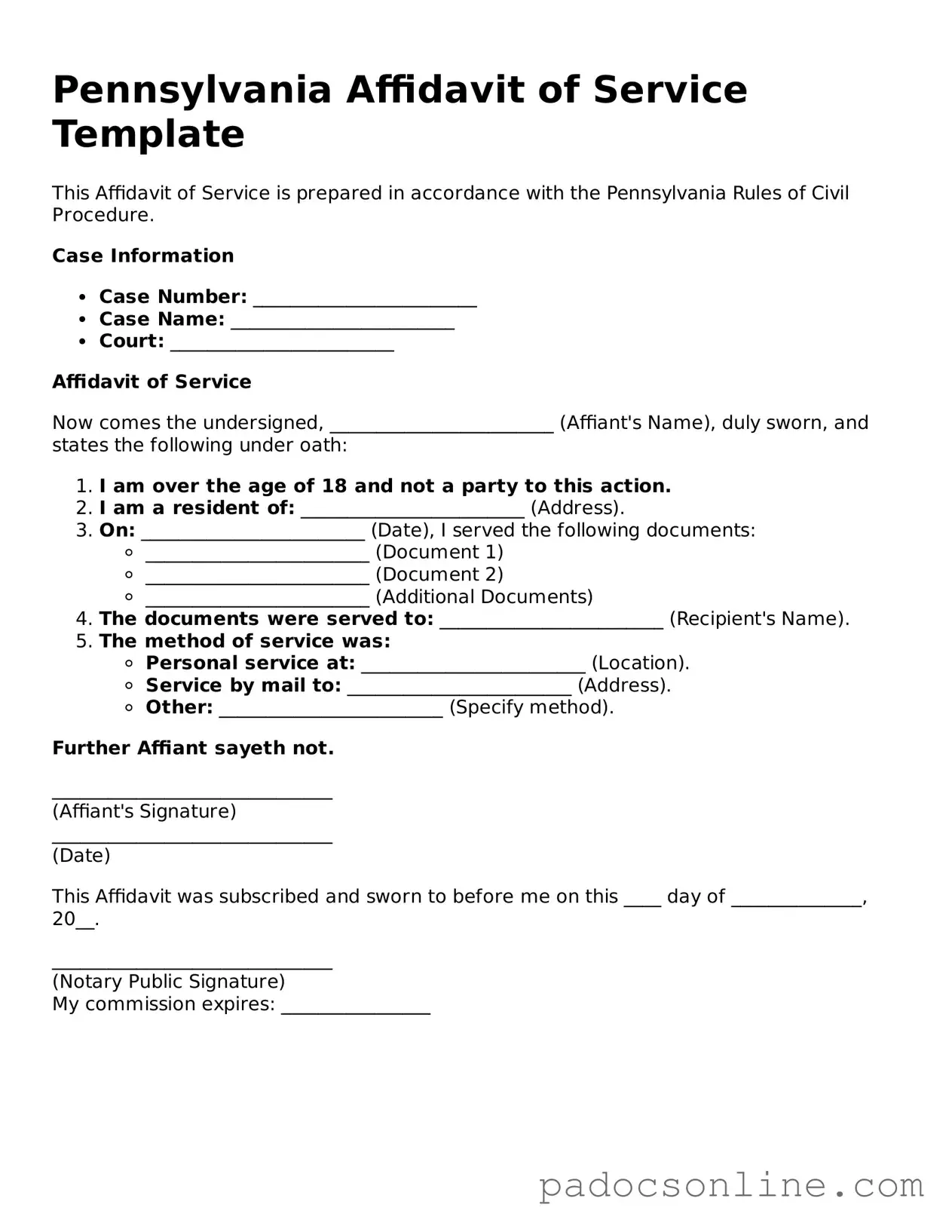Legal Affidavit of Service Document for the State of Pennsylvania
The Pennsylvania Affidavit of Service form is a legal document used to confirm that a party has delivered court documents to another party. This affidavit serves as proof that the recipient has been properly notified, which is crucial for ensuring that legal proceedings can move forward without unnecessary delays. To ensure compliance with Pennsylvania laws, it is essential to fill out this form accurately; click the button below to get started.
Fill Out My Form Now
